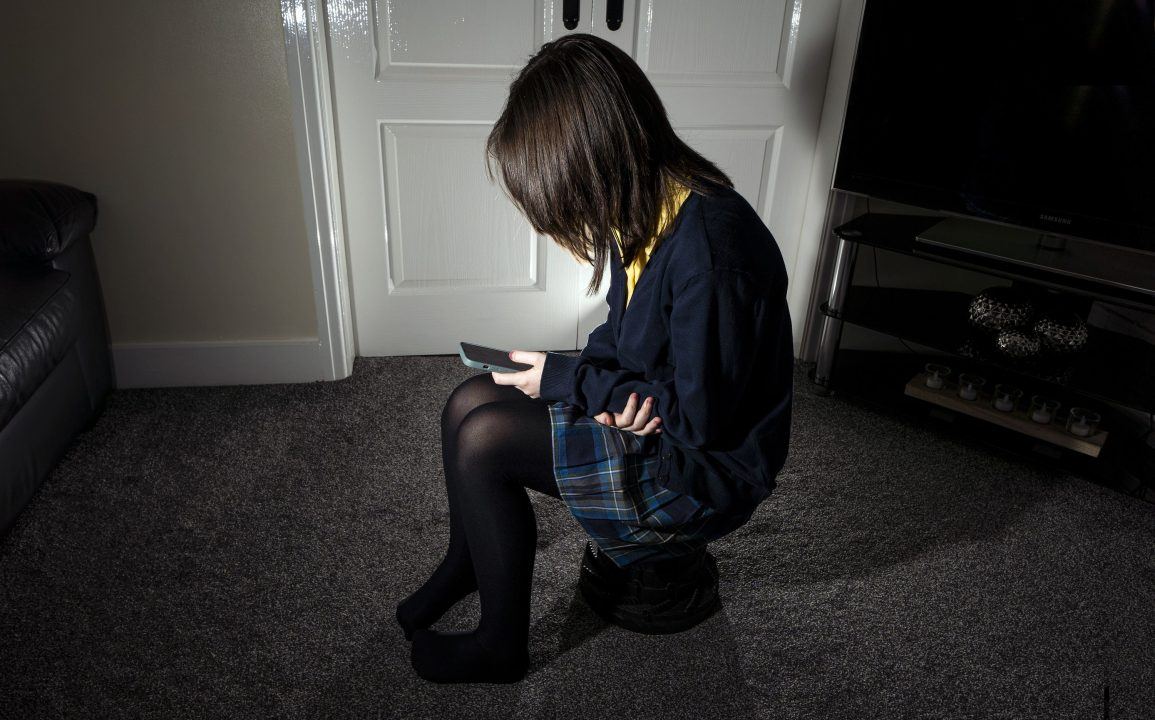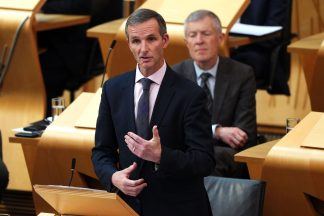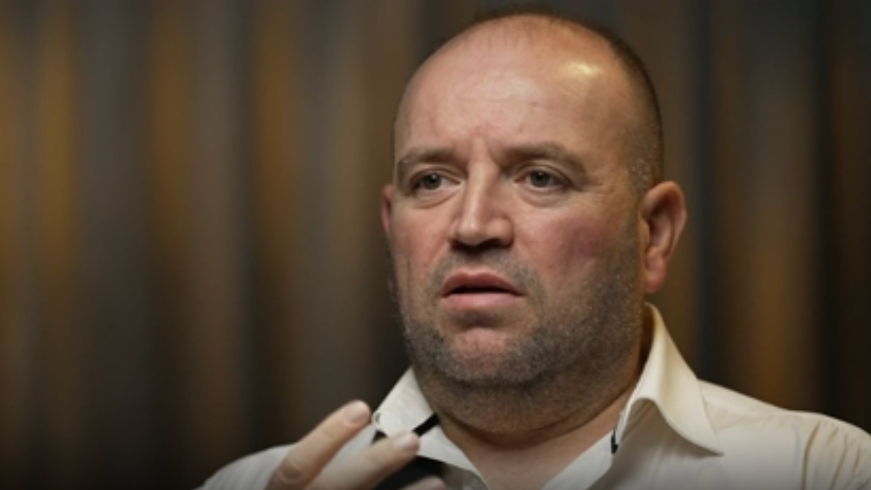Schools must treat incidents of online or cyberbullying with “the same level of seriousness” as bullying that takes place in person, according to new guidance from the Scottish Government.
Education secretary Jenny Gilruth has made clear there is “room for improvement” in dealing with bullying in Scotland’s schools following the publication.
She cited “challenges” with how bullying is recorded, saying incidents involving such behaviour are “often under-reported”.
She said the Scottish Government’s “clear expectation” is that “all reports of bullying should be recorded” – although she accepted “more rigorous recording” will “likely” lead to higher numbers of incidents in official data.
But Ms Gilruth said such a stance “demonstrates a commitment to transparency and ensures that every allegation of bullying is taken seriously”.
She was speaking as guidance was published that states schools must treat incidents of online or cyberbullying with “the same level of seriousness” as bullying that takes place in person.
Noting an inspection by Education Scotland had “highlighted some challenges implementing the previous guidance”, Ms Gilruth said: “I am clear that there is still room for improvement.”
The Respect for All guidance is published after a census in Scotland’s schools in 2021-22 found almost a third (31%) of pupils from P5 to S3 had been bullied in the last year.
According to the research, 82% of youngsters reported being bullied at school, while 36% experienced it online.
The new guidance – published as part of Anti-Bullying Week 2024 – describes online or cyberbullying as being a “significant concern affecting children and young people in Scotland”, noting how social media, messaging platforms and gaming forums can all be used to “intimidate, isolate or humiliate individuals”.
It stresses the problem should not be treated as a “technological issue to be resolved”, making clear: “Online bullying should be seen as related to where the bullying occurs, rather than as a different behaviour type.”
It adds: “Online bullying can be as damaging as offline bullying and may have more serious consequences due to the digital footprint, lasting presence, group dynamics, and potential for illegality.
“Online bullying should, therefore, be responded to with the same level of seriousness as any other form of offline bullying.”
Speaking during a visit to Cowie Primary in Stirling, Ms Gilruth said: “Bullying of any kind is never acceptable and can have a lasting impact on a child or young person’s life.
“It is vital that incidents of bullying, both online and offline, are addressed promptly and robustly.”
Adding the new guidance “focuses on prevention, response and inclusivity”, the Education Secretary said it also “reflects the pressures facing young people, including the increase in social media use”.
Lorraine Glass, director of the anti-bullying service respectme, welcomed the “vital guidance” and added: “We look forward to working with colleagues across Scotland to further embed the policy and practice necessary for the safety and wellbeing of all children and young people.
“This week, over 700 schools from every Scottish local authority area have engaged with our annual campaign on what ‘respect’ means to them.
“It’s been a phenomenal response and a testament to the commitment and energy of teachers, parents and youth workers to bring safety and happiness to young lives.”
Commenting on publication of the guidance, EIS general secretary Andrea Bradley said, “Bullying is never acceptable, in any walk of life, and this is especially the case in our schools, which strive to provide a welcoming, nurturing and safe environment for children and young people from all backgrounds.
“Most schools across the country will already have their own guidance in place and the EIS would expect, in the context of an empowered school, that schools, parents, teachers and pupils would all be involved in the development of policy – to ensure that there is full ownership of the anti-bullying approach which will be adopted on a whole-school basis.
However, Ms Bradley added, “The guidance seeks to engender a consistency of approach to tackling bullying across Scotland, such as in the recording and reporting of incidents, including those which are prejudiced-based. However, this will have resource implications for schools. Teachers are already massively over-burdened by their existing workload demands, working on average in excess of 11 extra hours over their contracted hours every week. To implement the guidance effectively, therefore, additional resourcing will be required to provide teachers and school staff with the time to record and report as outlined in the report.
“There must also be the requisite resources available to ensure appropriate interventions can be put in place to address the underlying cause of the bullying behaviour, which can often be complex and to ensure that there are adequate supports in place for those who have been the victim of bullying.
Ms Bradley added, “The most important step that can be taken to help tackle bullying in our schools and the implementation of the early intervention and prevention strategies rightly advocated in the guidance, is the deployment of additional staff, including the delivery of the Scottish Government’s manifesto commitment to recruit 3,500 additional teachers during the course of this Parliament to ensure that children and young people can benefit from smaller class sizes and more individual support.
“In an education system where schools are still working to overcome the many impacts of the pandemic on young people, more resources and more staff are needed to tackle issues such as bullying, no matter where it occurs or what form in takes. It is in the best interests of all young people, and of Scottish society, for challenging issues such as bullying to be properly addressed.”
Follow STV News on WhatsApp
Scan the QR code on your mobile device for all the latest news from around the country





























